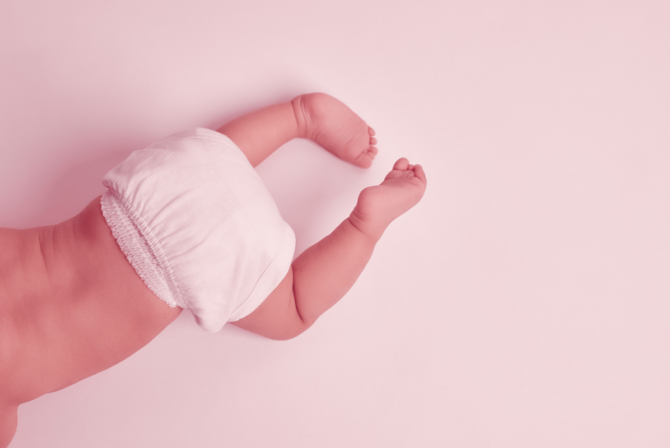The first time I heard the word “mikveh” was a few months before I got married. My soon to be husband and I met with the rabbi prior to our wedding. We chose this particular Orthodox rabbi because his mentor was my grandfather, who was also a rabbi. We did not belong to a synagogue, and rather than choosing a random rabbi, we felt this was meaningful. I would not classify my husband or I as “Orthodox” (although I don’t like to ever classify someone’s “Jewishness.” Can’t we all just be Jewish?). To my dismay, the rabbi advised me that I needed to go to the mikveh prior to the wedding ceremony.
I left the meeting feeling frustrated at this provision. Not only was it another chore for me to do before the wedding, but it was foreign and unknown to me. In addition, pre-childbirth, I was a modest person. (After going through labor and delivery, all bets are off. There is no such thing as modesty). I was the person in gym class or in the college dorms undressing in a locked bedroom or bathroom. Being naked in front of a stranger, the Mikveh Lady, was just something I was not interested in.
Yet I wanted this rabbi to marry us, so I agreed. Soon, all the wedding preparations were complete, except for one biggish thing–my mikveh appointment. With trepidation, I went to a mikveh on the Upper West Side. The first time still seems like a blur to me. However, I do remember the warmth and purity of the small pool of rainwater. The experience was not weird and in fact, felt natural. Most importantly, I remember leaving with a feeling of spirituality, which was indescribable. I promised myself that one day, I would return.
READ: How a Trip to the Mikveh Helped Me Face My Pregnancy Fears
About two years later, we welcomed a beautiful, healthy baby girl. Nineteen months later, our second little beauty arrived. Before conceiving, I had thought about going to the mikveh, but did not. Soon, we outgrew our apartment and bought a house on Long Island.
After we settled in, we debated whether we should have a third child. I kept my promise and returned to the mikveh before we began to try. I found one a few towns away. The phone call was the hardest part, but I did it. When I went, I was so happy that I returned. I wondered, “What took me so long to come back?” Upon immersing, I was overcome by that familiar feeling of spirituality.
I got pregnant right away, but sadly, that pregnancy ended in a miscarriage at 10 weeks in the worst possible way. On my own. At work. I managed to drive home, only to faint from all the blood loss. I called 911 and we spent the night at the hospital. We learned that the fetus had a chromosomal defect. I know that many women go through far worse, but how did this happen? I thought I was supposed to be “extra blessed” by going to the mikveh.
READ: Marking My Recovery in the Mikveh
I focused on all the good in my life. Fortunately, two wonderful kids and a husband will do just that. But, my soul wanted more. I needed something more meaningful to help me move on. I found myself reading more about the mikveh. I learned that women went not only for procreation, but after recovery from a loss or illness. Immersion is described as a “rebirth” of oneself. When a woman is able to immerse, her status is elevated and she is able to connect with God.
What I believe to be symbolic is that a mikveh in our neighborhood opened as I was ready to start fresh. It was beautiful, like a day spa. It was warm and welcoming. Going to the mikveh following my miscarriage closed that sad chapter of my life. I went in torn and poured my heart out, but left with newfound strength. The past was behind me.
I wanted a baby more than ever. I assumed that like my other pregnancies, I would conceive immediately. However, it took us about a year. How could this be? Wasn’t I doing what God wanted me to do?
READ: Returning to the Mikveh After Giving Birth
Month after month I found myself in familiar territory: the mikveh. I thought I would loathe it, as it was a constant reminder that I was not pregnant. But I found the opposite to be true. Each month I would mourn the day I got my period, but after it was over, I would immerse, pray, and leave with positive energy. It was very therapeutic.
On the 11th month of trying, I learned that I was pregnant. Nine months later, I gave birth to my third beautiful, healthy girl. She is my mikveh baby. When I was able to go back following the birth of my daughter, I thanked God a million times, in the most humble way, for answering my prayers. God was by my side every month.
READ: Yes, Mayim, You Can Still Go to the Mikveh
Gone are the days of me wanting to rush through the mikveh experience. It is the one time of the month that I can leave my amazing but chaotic house for an hour. I light a candle and soak in the jacuzzi before I immerse. I disconnect with the outside world, connect with God, and say my personal prayers. I leave the mikveh each month feeling calm and revitalized.
Last time I was there, I thought, “I wish every woman could experience the spirituality that I am feeling now.” No matter where you are in your life cycle, the mikveh can connect you to purity and holiness with God. It took me six years to go back. But I did. A rabbi I learned with in Israel once told me that we are all moving vessels at sea. It does not matter how long it takes to get to your destination, as long as you get there.







